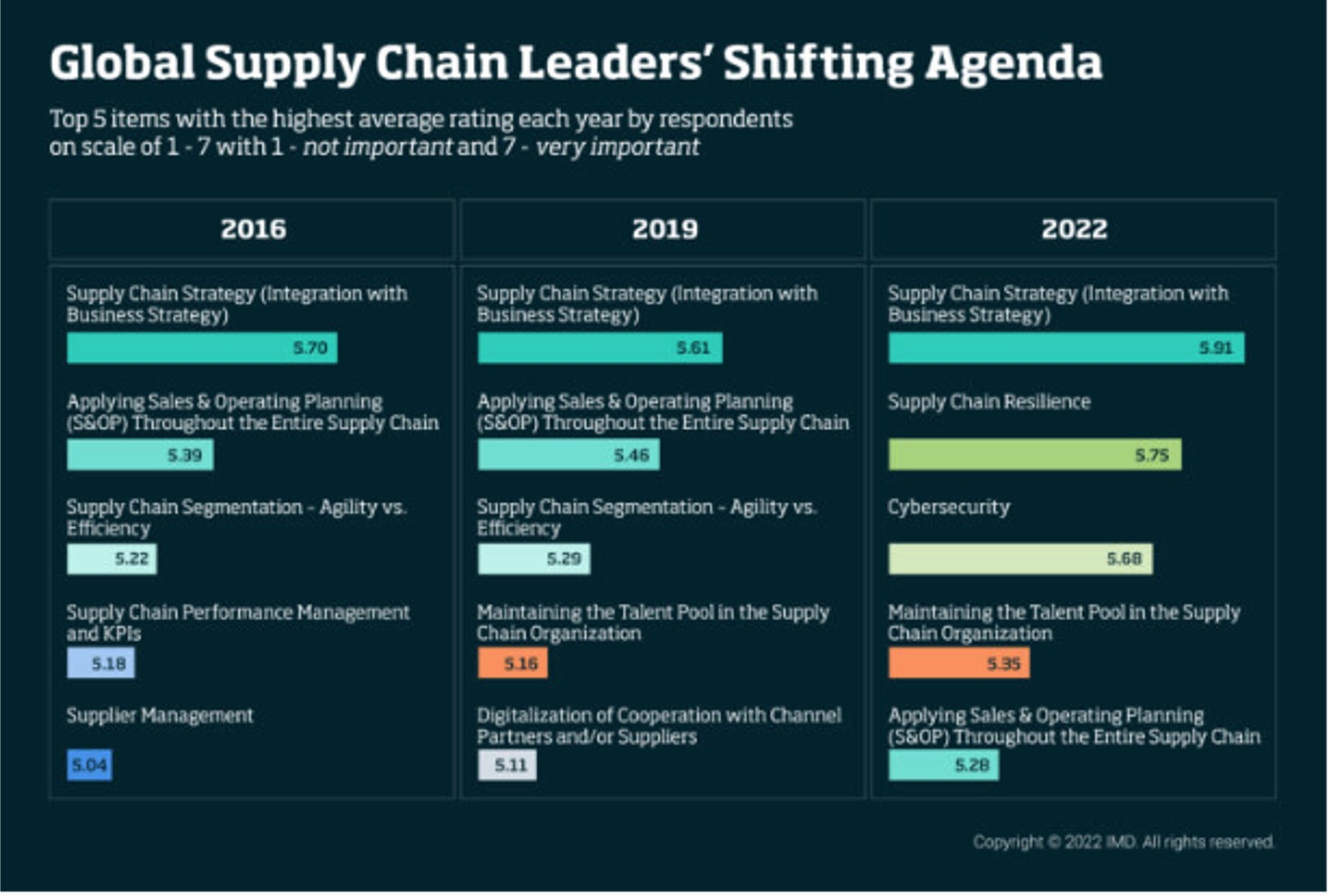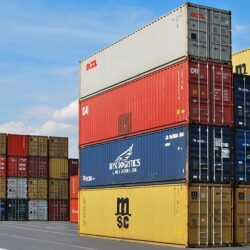The supply chain executive’s agenda keeps growing

The supply chain executive’s agenda is increasingly expanding. What’s more, there continues to be wide gaps between prioritized supply chain topics and their actual implementation. These findings come from the third edition of the IMD Global Supply Chain Survey, which asked senior executives to rate their organizations on 24 key supply chain management trends. The study also provides insight into how those trends have evolved over the past six years.
Prior to 2020, traditional topics such as supply chain and business strategy integration, supply chain segmentation and the systematic application of sales & operations planning (S&OP) were still at the top of most companies’ agendas, and supply chain digitalization was rapidly gaining importance. Nowadays, however, new trends such as supply chain resilience, cybersecurity and maintaining the talent pool in the supply chain organization are emerging as additional top priorities for supply chain executives, according to IMD.
Supply chain executives’ shifting agendas
On top of that, for most supply chain topics, the survey respondents report huge differences between their relative importance and the implementation progress achieved. In short, supply chain executives are busier than ever before and are being expected to keep ever more balls in the air, while dealing with topics where making tangible change is slow.
The survey was completed by around 350 experts from major international companies across various industries. The latest results – compared against those from 2019 and 2016 – make it clear that very few topics have declined in importance. The most pronounced change in recent years has been the decrease in the relative importance of blockchain for supply chains. And while the weight of artificial intelligence (AI), last-mile delivery and micro-fulfilment solutions all declined somewhat, they still remain relatively important.
Globalization of supply chain footprints
In the meantime, maintaining the pool of supply chain talent, compliance and governance, and supply chain sustainability have all steadily gained importance. Globalization of supply chain footprints appears to be the only topic where the progress achieved now exceeds its relative importance.
According to respondents, the track record of progress made is mixed. Over the past six years, significant implementation gaps have remained in basic competencies such as the integration of supply chain with business strategy and the application of S&OP throughout the supply chain. While progress has been made on digitalization, big data & real-time data use and AI, there continues to be a large gap between their importance and degree of implementation.
Supply chain resilience high on the agenda
Questions about supply chain resilience and cybersecurity were new in the 2022 survey, but these topics are clearly at the top of supply chain executives’ agendas (ranking in second and third place, respectively). When it comes to implementing key supply chain topics in 2022, respondents admit they still have work to do. For more than half of the priorities in the survey, the gap between importance and implementation has not significantly narrowed between 2019 and 2022. This is an issue that plays out in three key areas. Firstly, the gap manifests itself in the integration between supply chain and business strategy. Secondly, it is apparent in the digitalization of supplier and partner interactions and increasing visibility and forecast accuracy through improved data collection and data management processes. Thirdly, the gap can be observed in building a more sustainable supply chain.
Innovative technologies are becoming mainstream
According to IMD’s survey data, significant progress in implementation has been achieved in the use of AI and the Internet of Things for supply chain management, plus in the digitalization of collaboration with channel partners and suppliers. Meanwhile, the importance of these topics has decreased or remained the same over time. This indicates that innovative technologies are becoming more mainstream, IMD concludes.











